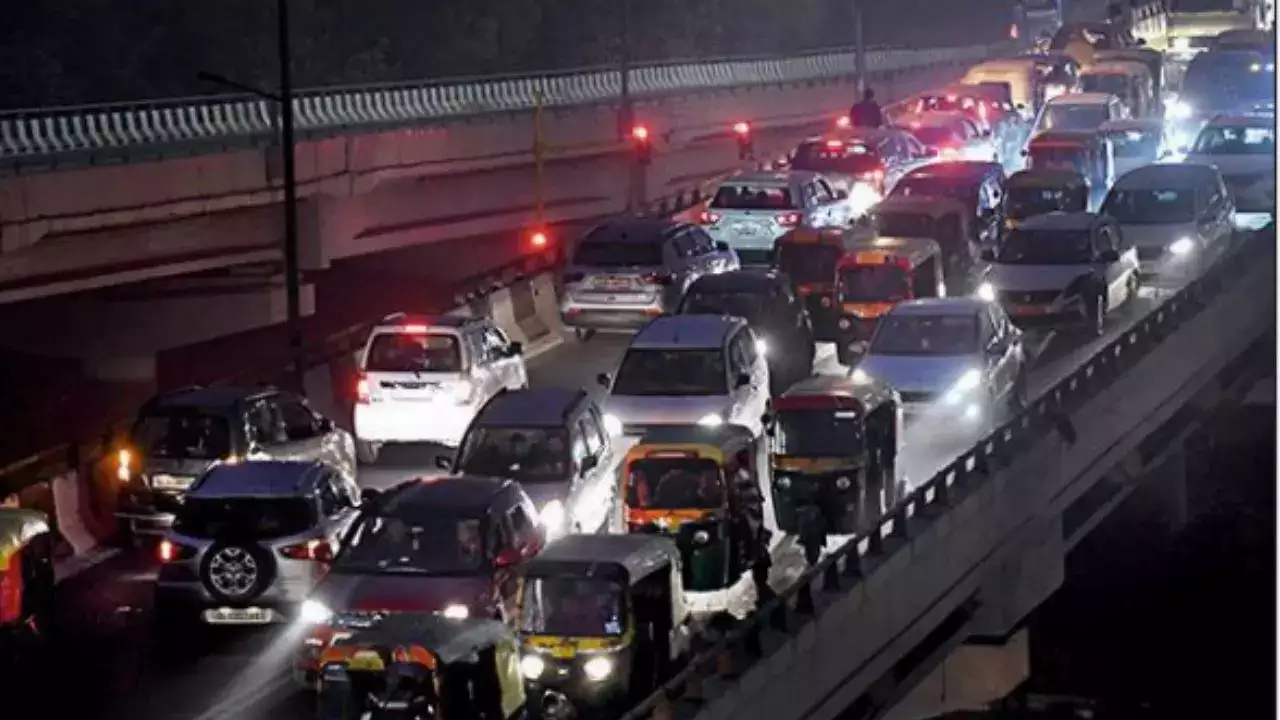 The government plans to collect the tax through FASTag.
The government plans to collect the tax through FASTag.Taking a cue from London, New York and Singapore, Delhi govt is considering slapping congestion tax on vehicles entering the city during peak hours — 8am to 10am and 5.30pm to 7.30pm — from 13 major entry points along its borders, in a bid to curb traffic congestion and pollution.
Govt plans to collect the tax through FASTag and not manually, so as not to spark snarls. Two-wheelers and non-polluting vehicles, including EVs, are set to be exempt.
A senior official said govt had been working on “congestion pricing” for which a proposal was also given, before the law department said the Motor Vehicles Act doesn’t define such charges. “So, either changes in the Act or new statutory provisions are needed,” the official said.
Earlier plans for congestion tax had failed to take offThe amount collected as congestion tax and related penalties will be exclusively used to augment public transport and improve roads, particularly for the most vulnerable users such as, cyclists and pedestrians, another official said.
He said that the urban continuum, comprising rapidly growing towns in neighbouring states and the inflow of commercial goods-carrying vehicles, has increased the flow of vehicles into Delhi from the city’s periphery.
"Additional time spent in traffic also has consequences for air quality due to increased idling emissions," he added.
Currently, there are several choke points at border areas of Delhi, including ones at DND and New Ashok Nagar.
This is not the first time that such plans have been proposed in the national capital. Earlier, there were proposals in different forms, but they did not take off. In 2018, the govt formed a proposal to levy a "congestion" tax on vehicles entering select road stretches in the national capital that see heavy traffic. The 21 stretches included the corridor between Aurobindo Chowk and Andheria More, Nehru Place flyover to Modi Mills flyover, areas around Hauz Khas Metro station on the Outer Ring Road, and the ITO intersection.
In 2009, former chief minister Sheila Dikshit wanted to bring the charge under which all private vehicles entering the capital would have to pay an additional tax to encourage the use of public transport. Speaking at the NCR Planning Board, she said the traffic congestion in the capital was compounded by the large number of vehicles coming from adjoining areas. The proposal later went on the backburner.
The government plans to collect the tax through FASTag. “Basically, it would not be manual but through RFID readers and NPR (number plate recognition) cameras so that one does not have to wait. Otherwise the whole purpose would be defeated if this causes a jam, said an official.
